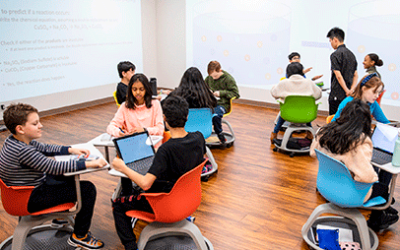ISP schools · Empowering learners

Welcome to ISP
Our community is made up of 80 schools in 22 countries and we’re still growing. We focus on encouraging students to take ownership of their learning, so they can thrive now and throughout their lifetime.

The ISP difference
At ISP, we support students to take ownership of their learning. Every student is motivated to shape
their world through transformative learning experiences. We are dedicated to developing the
knowledge and lifelong skills that will allow our students to succeed at school and beyond.
The ISP impact on students · Our five pillars of learning


At ISP, we believe that self-confidence is transformational.
Our students develop the self-confidence, knowledge and lifelong skills that will help them thrive now and throughout their lifetime.
Emily Porter
Group Chief Education and Innovation Officer
At ISP, we believe that self-confidence is transformational.
Our students develop the self-confidence, knowledge and lifelong skills that will help them thrive now and throughout their lifetime.
Emily Porter
Group Chief Education and Innovation Officer
Highlights
ISP is a global community of 80 international schools across 22 countries
curriculum
development*
University advisors
Development




Highlights
ISP a global community of 80 international schools across 22 countries
curriculum
development*
Advisors




Highlights
ISP a global community of 80 international schools across 22 countries
curriculum
development*
Advisors



International opportunities
Our International Learning Opportunities for Students (ILOS) connect ISP students around the world through beyond-the-classroom experiences. Every ILOS programme provides our students with a platform to pursue their interests and practise their global competencies.

ISP Cultural Exchange
This is a chance for students to engage in a culture different from their own. Students experience an international homestay while attending another ISP school for a month.

ISP Model United Nations
Diplomacy, international relations, research techniques, public speaking, and debating – these are just some of the skills students learn in this experience. They’ll have the opportunity to become delegates in online and in-person Model United Nations Committees.

ISP Filmmakers
Through this programme, students discover the value of collaboration. As they create their own film, from storyboarding to special effects, students express their creativity and gain valuable insights into film and media careers.

Model United Nations has helped me gain so much new knowledge regarding world issues and the world as a whole. Aside from that, my public speaking skills have improved tremendously, and I have become more confident in myself.
I would highly recommend this programme to anyone looking for a new, great experience.
Student, Asia Pacific Schools, Malaysia

Model United Nations has helped me gain so much new knowledge regarding world issues and the world as a whole. Aside from that, my public speaking skills have improved tremendously, and I have become more confident in myself.
I would highly recommend this programme to anyone looking for a new, great experience.
Student
Asia Pacific Schools, Malaysia
Life at an ISP school
A positive learning environment leads to positive learning outcomes. At every ISP school, students are welcomed into a supportive atmosphere where care and individuality are valued.
Joining an ISP school means experiencing:

A global mindset
ISP students stand out for their global mindset. As an international group, we nurture empathy and cultural awareness in all our students.
Teaching excellence
Our teacher professional development programmes set our teachers on a path to keep learning so they can always be at their best. It means everyone at the school is involved in enriching the ISP student experience.
Learning atmosphere
Our passionate and experienced teachers create stimulating environments. Questions are welcome and curiosity is encouraged. This culture supports students' self-confidence and contributes to their overall wellbeing.
Student-centred spaces
All ISP students learn in the ideal setting to ignite their academic and personal interests. Innovative STEAM labs, spacious sports facilities, green areas, and sensory rooms are just some examples of the latest technology in our schools.

Our schools























































 On the radar
On the radar




















